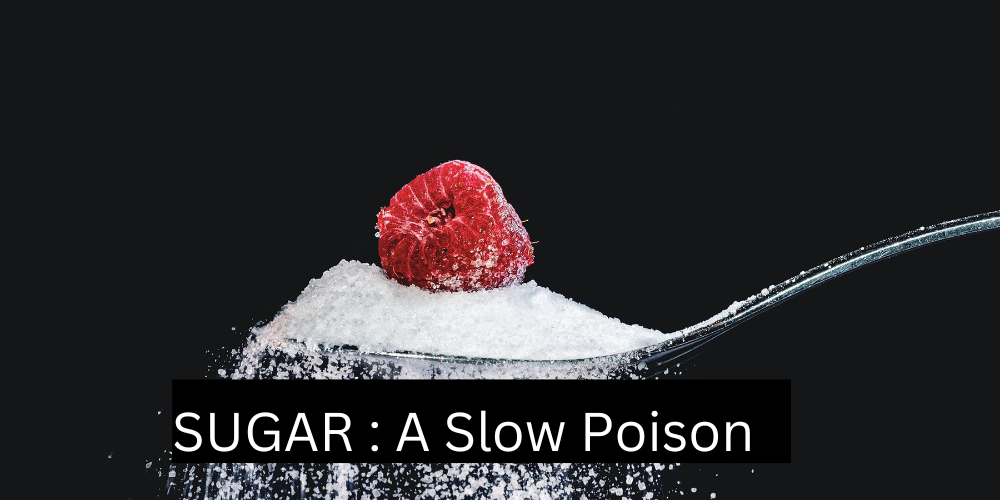The extremity of any kind is bad.
Similarly, Excess sugar consumption can have negative health effects, such as contributing to the development of obesity, type 2 diabetes, and tooth decay.
However, moderate sugar intake can be part of a healthy diet when consumed in moderation and balanced with physical activity and a nutritious diet.
If you have sugar in moderation it causes no harm.
Is sugar more addictive than cocaine?
No, sugar is not more addictive than cocaine. While some studies have suggested that sugar can activate the same reward centres in the brain as drugs such as cocaine, leading to compulsive consumption, the mechanisms and intensity of addiction are different.
Cocaine is a powerful and highly addictive stimulant drug that affects the brain’s reward system, leading to dependence and withdrawal symptoms.
In comparison, excessive sugar consumption can lead to a sweet tooth.
It has heath hazards related to excessive eating of sugar.
It does not cause the same level of physical dependence or withdrawal symptoms as seen with drugs like cocaine.
It is important to note that comparing the addictive properties of different substances can be complex and subject to debate and that the best approach is to focus on maintaining a balanced and healthy lifestyle, including a balanced diet and moderate sugar consumption.
Excess Sugar consumption leads to cancer,REALLY?
Excess sugar consumption has been suggested as a potential contributor to the development of certain types of cancer, but the evidence is not yet clear and conclusive.
Some studies have suggested that high levels of insulin, which can be caused by a diet high in sugar and refined carbohydrates, may increase the risk of certain cancers.
Other research has also suggested that high sugar consumption may increase oxidative stress, inflammation, and other processes that can contribute to the development of cancer.
However, more research is needed to establish a direct and causative link between sugar consumption and cancer. It is important to note that many other factors, such as genetics, lifestyle, and environmental factors, can also play a role in the development of cancer.
While it is wise to limit excessive sugar consumption as part of a balanced and nutritious diet, it is not currently recommended to avoid sugar completely as a means of preventing cancer.
Instead, a balanced diet that includes a variety of foods, regular physical activity, and avoiding tobacco and excessive alcohol consumption are among the best strategies for promoting overall health and reducing cancer risk.
Using sugar substitutes as sweeteners? Good choice! Bad choice!
The use of sugar substitutes, such as artificial sweeteners, can be a useful tool for some individuals to help reduce overall sugar and calorie intake as part of a balanced diet.
Artificial sweeteners are low-calorie or calorie-free substitutes for sugar that can provide a sweet taste without the added calories and potential negative health effects of excess sugar consumption. Some common examples of artificial sweeteners include saccharin, aspartame, and stevia.
However, it is important to note that not all sugar substitutes are the same and some may have potential health concerns, such as effects on gut bacteria or potential adverse effects on metabolism and blood sugar regulation. Some people may also be sensitive to artificial sweeteners and experience side effects such as headaches, gastrointestinal discomfort, or allergic reactions.
Ultimately, whether or not the use of sugar substitutes is a good choice depends on an individual’s specific needs, preferences, and health status. It is important to consult with a healthcare professional for personalized advice and to make informed dietary choices based on the best available evidence.
What is a Sugar rush?
A sugar rush is a term commonly used to describe the temporary increase in energy, alertness, and excitement that can occur after consuming a large amount of sugar. This is thought to be due to the rapid release of glucose into the bloodstream, which can cause an increase in insulin secretion and a subsequent release of energy from the liver.
However, the sugar rush is usually followed by a sugar crash, which is characterized by feelings of fatigue, irritability, and decreased mental and physical energy. This is due to the rapid fall in blood sugar levels that occurs after the initial increase.
It is important to note that a sugar rush can provide a quick boost of energy.
However, it is not a sustainable source of energy and can have negative health effects when consumed in excess, such as contributing to the development of obesity, type 2 diabetes, and tooth decay.
A balanced diet that includes a variety of nutrient-dense foods and limits added sugars is a more sustainable approach to maintaining energy and overall health.
Hence the time you end up eating an entire tub of ice cream or a big chunk of chocolate cake when you are depressed or feeling low. It gives you a sudden kick of dopamine only to settle down later.
Moral of the story is excess of anything is bad. Striking the right balance is the key to all happiness and wellbeing. Having it in moderation is the key to good health.

